Meet our Speakers
ELACTA is pleased to begin presenting the conference speakers.

GEUENS Sam (Belgium) MSc, MA Sam Geuens is a clinical sexologist. He is a midwifery lecturer at the PXL University College and practices at the St. Franciscus Hospital (B). He founded the Society Midwifery & Sexuality who published the open access textbook ‘Midwifery & Sexuality’. |
What about sex?!
Exploring the impact of healthy breastfeeding and breastfeeding pathologies on sexual wellbeing. The WHO states that sexual health is an integral part of health in general, meaning that a holistic approach to care must entail attention to clients’ sexual health. We know that even healthy breastfeeding situations have a clear impact on sexuality, more so with breastfeeding pathology. So, any episode of breastfeeding a risky period for developing sexual problems. This lecture provides an overview of the impact of healthy and pathological breastfeeding on sexual health and couple intimacy.
Presents on May 17th, 2024
|
|
(USA) IBCLC, RLC, INHC, BSc, CCCE Laurel Wilson (US) is a women’s health and perinatal specialist, an integrative nutrition health coach, an international board-certified lactation consultant, a speaker consultant, an educator and author. At the same time, she is a TedX and international speaker. |
Who knew? The Estrobolome and the Mammary Gland
The estrobolome is a collection of influential bacteria in the gut that impact estrogen release and hormonal function. This delicate balance of bacteria has a significant impact on estrogen function and levels in the body. This presentation addresses what we know now about the estrobolome, how it functions, it’s relationship with reproductive organs, potential impacts on the mammary function, and how we can influence positive change in the gut for optimal estrobolome performance.
Presents on May 18th
|
|
(Germany) Engineer, IBCLC Márta Guóth-Gumberger is a graduated engineer, a lactation consultant IBCLC and is a pre- and perinatal somatic practitioner (D). She works in her private practice with extensive experience in tongue-tie. She is author of many publications and runs the website www.breastfeeding-support.de. |
The anatomy of the lingual frenulum
The lingual frenulum is a midline structure under the tongue blade with extensive variation in shape and thickness allowing for normal or limited tongue mobility. The findings in literature of a microdissection of infant cadavers will be introduced, followed by the in-vivo presentation of the anatomy in its different aspects with many photos. In this presentation we will concentrate on the anatomical structure, whereas for tongue-tie diagnosis an evaluation of both appearance and function are necessary.
Presents on May 17th
|
|
DRUART Katelijne (Belgium) Lactation Consultant IBCLC Katelijne Druart is a Belgian French speaking breastfeeding trainer in business settings to support breastfeeding between home and work
|
Workshop in French
Du sein à la fourchette Allaiter à la crèche, chez l’accueillante, à la halte-accueil… est une possibilité dès lors que le milieu d’accueil l’inscrit dans son projet Penchons-nous sur les aspects relationnels et émotionnels liés aux repas. En collectivité, comment penser la continuité entre famille et milieu d’accueil autour de l’alimentation ? Comment tenir compte des valeurs de chacun, du développement des cinq sens, du respect du rythme et des besoins de l’enfant ? From breast to fork Breastfeeding at the nursery or in childcare… is a possibility as long as the childcare environment includes it in its project? Let’s look at the relational and emotional aspects linked to meals. In a community, how can we think about continuity between family and host environment around food? Presents on May 16 |

Marija Bagdoniene (Lithuania) MA , EPS Marija has a Master degree in Clinical psychology. She is an actual member and a secretary of the East European Association of Existential Psychotherapy. She works as a clinical psychologist and existential psychotherapist, supervisor with adults and couples in her private practice in Vilnius (LT). Her fields of interest are postpartum depression and bereavement psychology. |
Postpartum depression in breastfeeding women (maternal mental health).
During this workshop we will discuss the main symptoms of postpartum depression and its impact on the mental health of mother and child. The focus will be on how to recognize postpartum depression and in what ways and means to prevent and help to alleviate it.
Presents on May 16.
|
|
(Luxemburg) IBCLC, FILCA Maryse Arendt has a BS in education. At the same time, she is a lactation consultant IBCLC. Her special interest and dedication is implementation of the WHO International Code of Breastmilk Substitutes and BFHI. |
International Code and Baby-Friendly interlinked? What’s new?
In Europe, governments adopted the Code and all subsequent resolutions at the World Health Assemblies without getting active to enforce full legislation. The Code is important to protect families from the predatory marketing of formula milk companies. The Code has become more important in BFHI. Baby-friendly hospitals might be the only places in a country where health professionals abide to their duties under the Code. New publications on the Code, BFHI and the 10 Steps will be presented.
Presents on May 17.
|
|
(Germany) RM, IBCLC Simone works as a Family Lab family counselor and a lactation consultant IBCLC. She is the director of the “Europäisches Institut für Stillen und Laktation” (EISL). |
Workshop in German
Intuïtive breastfeeding Intuitive breastfeeding describes the interaction between mother and child during breastfeeding. This optimal interaction is achieved when feeding is done in a relaxed and safe manner. And instincts, innate reflexes and behavioral patterns are used wisely. The workshop on “Intuitive Breastfeeding” offers lactation consultants the opportunity to rethink standardized techniques in breastfeeding counselling and to help mothers and their children to find their own, individual way.
Presents on May 16.
|

Muyldermans Joke (Belgium) RM, MSc, IBCLC Joke is a midwife (MSc), and a lactation consultant IBCLC. She runs her own primary care practice. At the same time, she is lecturer, head editor of the Flemish Journal of Midwifery and board member of VBOV and ELACTA. Nowadays she is also doing a PhD at the University of Brussels. |
Candida infection during breastfeeding, diagnosis and treatment
An early and correct detection of Oropharyngeal candidiasis (OPC) in breastfed infants or Candidiasis of the breast and/or nipple followed by effective treatment are crucial to avoid pain during breastfeeding, possibly followed by premature weaning. We will discuss the current knowledge on diagnosis and treatment of OPC or candidiasis during breastfeeding and have a deeper look at the effectiveness and safety of treatment.
Presents on May 18.
|

OLA Andreea (Romania) Clinical Psychologist, IBCLC Andreea Ola (RO) is a clinical psychologist and lactation consultant IBCLC since 2015. She has extensive experience in working with the mother-infant dyad. At the same time, she is conducting training in various settings (academic and medical fields, formal and informal education). |
Breastfeeding and postpartum depression
Postpartum depression (PPD) is one of the most common challenges that mothers face after birth. Research has pointed out towards the negative implications PPD has for the mother-infant dyad and for the entire family. As a „first-responder” in the perinatal period, the lactation consultant has the unique opportunity to identify mothers at risk for PPD and refer them to help. Therefore, it is essential to understand the specifics of this maternal mood disorder and how it can affect breastfeeding.
Presents on May 18.
|

POPOV Adina (Romania) Pharmacist, IBCLC Adina Popov is passionate about breastfeeding’s function and challenges. She aims to support parents by transforming breastmilk into more than just a food source — into the architect of a baby’s oral anatomy, body, and immune system. |
Adina will present two topics
At the workshop: Breastfeeding: a journey of primitive reflexes In this workshop we will explore the intricate journey of breastfeeding, from the newborns primitive reflexes point of view. We will unveil the normal patterns and the challenges arising when these reflexes cannot express as nature designed them. Besides we will gain insights into a strategic intervention approach to mitigate difficulties and ensure a successful breastfeeding experience. Presents on May 16. At the Conference: The reflexive act of breastfeeding Parents naturally acquire breastfeeding skills through observation of family and community members. However, in a modern setting where feeding is often isolated, this learning opportunity diminishes. Breastfeeding, usually guided by innate reflexes, becomes challenging when these reflexes are not properly manifested. Recognizing and offering support where needed is crucial to ensure successful breastfeeding and mitigate potential difficulties. Presents on May 17. |
|
(Belgium) Pharmacist, PhD Prof. Tommelein is a pharmacist and Belgian lactation consultant. She teaches ‘Pharmacology in Midwifery’ and ‘Nutrition in the first two years of life’ and is specialized in the compatibility of medicines and food supplements with breastfeeding.
|
Eline will present two topics
At the workshop: Medication during breastfeeding Hands-on practice exercises The workshop on medication use during breastfeeding will provide a solid theoretical foundation, but the primary emphasis will be on hands-on practical exercises. We will delve into topics such as the use of antidepressants, biologicals, and pain medication, offering valuable insights and guidance for healthcare providers and mothers alike. Don’t miss this opportunity to enhance your understanding and skills in this critical area of maternal and infant health. Presents on May 16. At the Conference: Overproduction and under production, how to use medication and galactagogues In this oral presentation, we will explore the evidence surrounding the use of medication and food supplements to enhance milk supply during breastfeeding. Delving into the latest research findings and clinical insights, we will provide a comprehensive overview of the effectiveness and safety of these interventions. Join us to gain a deeper understanding of this critical aspect of breastfeeding and the potential avenues to tackle questions surrounding insufficient milk supply. Presents on May 17. |
|
(Belgium) RM, LC, IBCLC Katia Wilboorts is a midwife and lactation consultant IBCLC. Besides having her own private practice Natus in Antwerp, she also works in the multidisciplinary ‘Respire Clinic’ in Ghent. In this clinic, babies with restrictive tongue and lip ties are treated. |
Restrictive tongue or lip tie, do we have more options then lasering or cutting?
What can we do when treatment of a restrictive tongue-or lip tie is contra-indicated, not possible due to circumstances, or just not desired by the parents? Are there other options to help the baby and the parents? How can we support tongue function as good as possible in a non-invasive way? Presnets on May 16.
|
|
(Spain) MD, IBCLC Dr. Baeza has Master Degree (MD) in Family Medicine. Since 2005, she is also a lactation consultant IBCLC. She practices breastfeeding medicine at a private practice in Madrid, Spain. Meanwhile she is coordinator at the European Institute of Perinatal Mental Health and a national and international speaker. |
Management of chronic breast pain from an ecosystemic view
Assessment of pain during lactation differs significantly from other types because it is a system we must explore – not a single patient but the interaction between the mother and her infant (that is, the dyad). In this talk, an ecosystemic overview of the evaluation and management of breast and nipple pain is offered, based on current research and clinical practice.
Presents on May 18.
|
|
speaker replacement
Dip He DPSI (Scotland) Mara Ricoy Olariaga also known as Matriactivista is a feminist activist and birth educator who has been campaigning for the rights of women, mothers and babies for over twenty years, she is a writer and the founder of The Roses Revolution Movement. |
Mara will present two topics
How our own family breastfeeding stories affect us In this workshop we will come together to discuss our own family histories and how they impact our own thoughts about breastfeeding. We will also look more widely to explore how the way that our mothers and grandmothers fed, birthed and raised their babies impacts on our own views about the female body, and about our own relationship with our bodies. The workshop will explore the perceived reliability / unreliability of the female body and the cultural and family messaging around this. Presents on May 16. At the conference: Breastfeeding as a feminist issue What are the cultural stories that we tell about the female body and how might these impact on an individual’s breastfeeding experience? Breastfeeding is a feminist issue not just because so many women are being failed, but because they are being allowed to spend a lifetime thinking that this failure belonged to them. What would we need to address in our culture in order to turn this around? Presents on May 17. |
|
AASEN Ina (Norway) Ina Aasen (N) is a midwife, IBCLC, with a Master degree in Nursing science, on the topic of breastfeeding and lactation consultation. She is a senior adviser in the Norwegian institute of public health and works with breastfeeding and human milk. |
Breastfeeding frequency in the first 24 hours of life
In Norway, information to mothers regarding recommended breastfeeding frequency during the first 24 hours after delivery is inconsistent due to lack of evidence. Therefore, a systematic review has been done aiming to identify observed breastfeeding frequency during the first 24 hours after delivery in healthy term newborns, to see whether frequency is related to timing of secretory activation, early milk production, early weight development, bilirubin levels and breastfeeding rates. Presents on May 17. |
|
(Germany) Prof. Dr. Bodo (D) is an Associate Professor at the University of Osnabrück since 1994. His research interests are milk signaling, milk exosomes, milk microRNA-mediated signal transduction, epigenetics of milk microRNA in health and disease. |
The role of breastmilk exosomal microRNAs in pancreatic β-cell proliferation and diabetes prevention
Postnatal uptake of bioactive exosomes and their RNAs appears to be physiological requirement for beta-cell mass expansion which may have an early impact on the prevention of type 2 diabetes later in life.
Presents on May 18. |
|
CHAPIN Elise M. (Italy) M.Ed., IBCLC, MSc.PH Elise Chapin works for UNICEF Italy on the Baby-Friendly Initiatives (BFI). She is part of the WHO/UNICEF Competency verification toolkit team, and other national and international projects. She has been an IBCLC for more than 20 years. |
How to apply the WHO code in practice?
The International Code was first adopted in 1981, and yet it faces new challenges every year. A recent WHO/UNICEF publication showed how “pervasive, personalized, and powerful” the digital marketing of commercial milk formula is. This workshop will examine how industry influence works, how it creates conflicts of interest (COI), how to protect families and healthcare personnel from commercial pressures, especially in Baby-Friendly settings, and avoid COI by implementing the International Code. Leads a workshop on May 16. |
|
Eerdekens An (Belgium) Prof. An Eerdekens (B) works as neonatologist and IBCLC on breastfeeding policies, both on the local, national as international level. She is medical responsible for, at one hand, the internal milk bank Doneo in UZ Leuven and on the other hand, the legal framework of Belgian milk banks. |
Milk bank: how to handle donor milk in the NICU
Sharing breast milk is of all times. The establishment of milk banks has its origins early last century. Meanwhile, there is scientific evidence that donor breast milk has therapeutic value for preterm newborns. During this talk, we will discuss the historical framework, the scientific arguments for the use of donor breast milk and practical aspects surrounding the use of donor breast milk. Finally, sociocultural concerns around the use of donor breast milk will also be addressed. Presents on May 18.
|
|
GROISS Nathalie (Austria) Natalie Groiss lives and works in Vienna (AU). She is qualified as a pediatric nurse with specifications in intensive- and anesthesia care. She is an employee at the Europäisches Institut für Stillen und Laktation (EISL) and an IBCLC in private practice. |
Workshop in German
Perinatal management of mental illnesses from the perspective of the IBCLC breastfeeding and lactation consultant In this workshop, we will deal with psychological stress during breastfeeding. Together we will develop possible strategies from the perspective of the IBCLC and look at early detection as well as the situation with an existing diagnosis. We’ll draw up a birth plan, touch on the exciting field of psychoneuroimmunology and neurodiversity and improve our communication skills in relation to challenging consultations. Leads a workshop on May 16. |
|
NISET Anne (Belgium) Anne Niset (B) is a midwife and an IBCLC (re-certificate in 2022). At the same time, she is the President of the Belgian association of French- and German-speaking lactation consultants. |
Workshop in French
Nécrose du sein et adénomatose érosive du mamelon durant l’allaitement For healthcare professionals it is important to work together, as each brings expertise and a more extended view of the situation, while also considering, the experience and monitoring of the situation by the mother’s trusted professional. All mother-child services should invest in professionals specializing in IBCLC breastfeeding or holding a DIU who collaborate with the various specialists from different disciplines. Leads a workshop on May 16. |
|
DEBBIE Ann (Belgium) Ann is a midwife and currently works as a midwife, lactation consultant and diabetes educator in a hospital and she is guest lecturer in various high schools in Flanders. Debbie Ann’s special interest is in the guidance and support of women with diabetes and breastfeeding. |
Diabetes type 1-2 and breastfeeding
Diabetes is quite a challenge when you want children. From the very beginning of their desire to become pregnant, a lot is asked of this specific group of women. Breastfeeding is definitely recommended. However, it brings specific challenges that we as lactation consultants are not always familiar with. By discussing these specific challenges during pregnancy you as a lactation consultant will increase the chance of success. I would like to discuss these special challenges with you. Presents on May 18th, 2024 |
Follow on updates on our FB
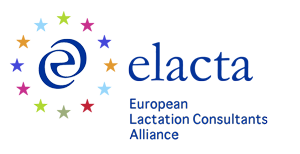

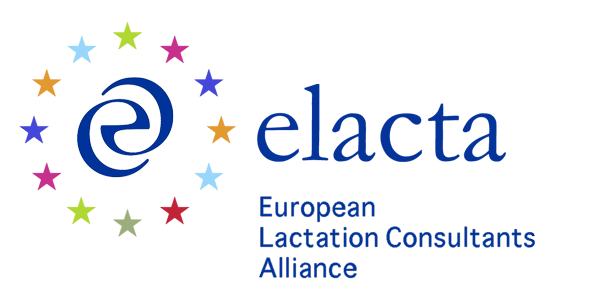
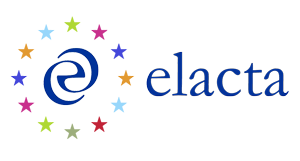
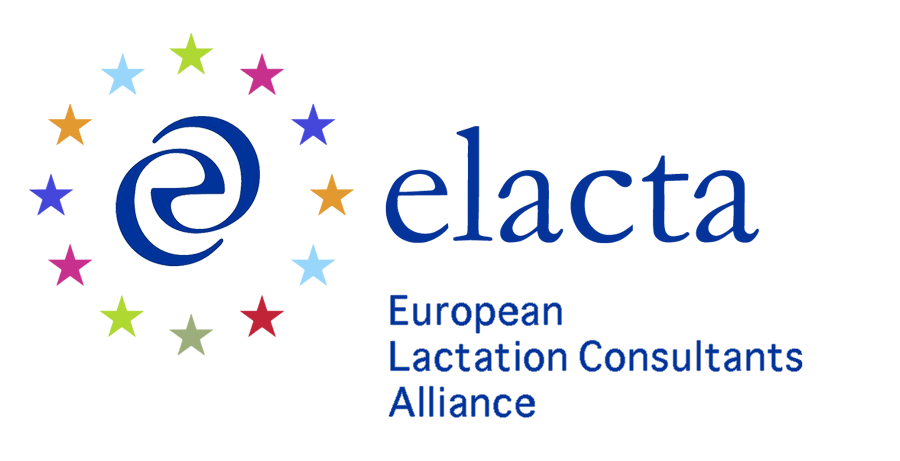
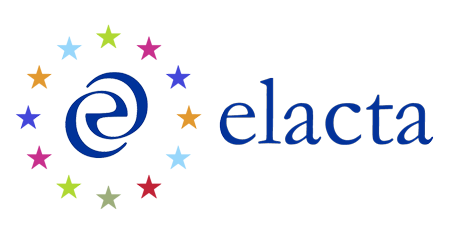
 WILSON Laurel
WILSON Laurel GUOTH-GUMBERGER Marta
GUOTH-GUMBERGER Marta
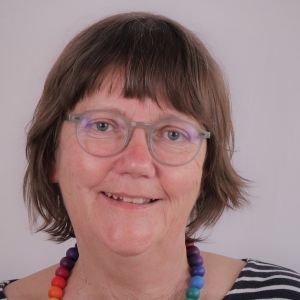 ARENDT Maryse
ARENDT Maryse Lehwald Simone
Lehwald Simone TOMMELEIN Eline
TOMMELEIN Eline Wilboorts Katia
Wilboorts Katia BAEZA Carmela Kika
BAEZA Carmela Kika Mara
Mara
 MELNIK Bodo
MELNIK Bodo



